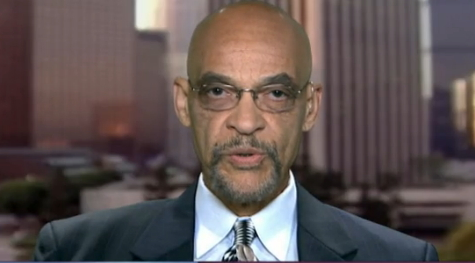Earl Ofari Hutchinson
Now that the Bob Marley biopic One Love has hit the big screen, there’s one question that I have been asked more than any other over the years about noted personalities I have interviewed and rubbed shoulders in the studio with. That question is “Tell me what he and it was like’?’ The “he” is Bob Marley. The “it” is what was your feeling and impression of him during the interview with hi? One over exuberant fan even said with a mix of awe and reverence “It was like sitting at the right hand of God.”
I’ve often thought about the two questions and the subject of the question over the years. It was a fall day in 1973 when I got the call from one of the several major record company publicists that I had developed a close working relationship with. Then I did an hour-long jazz and arts show on KPFK-Pacifica Radio in L.A.
The routine was pretty standard. The publicist would have a hot new artist either appearing or recording in L.A. They pitched me for the interview. The publicist said this was Marley’s first trip to the West Coast as part of his first American tour with his group, The Wailers. He was here for a recording session at Capitol Records. Unlike some of the other, better-known artists, I knew absolutely nothing about Marley. So, I had some trepidation and uncertainty about trying to do justice to his music and art in the interview.
The first mild surprise came when he and the publicist arrived at the station. I was struck by how smallish, boyish looking, and totally unassuming he was when we shook hands and exchanged pleasantries. His slight stature made him appear even more youthful.
I also couldn’t take my eyes off his long flowing locked hair. This was the first time I had seen anyone with dreadlocks. I expected as interviews of this sort usually went that the sole focus would be on his music, a little about his start, and concert plans. Standard stuff. It was anything but that.
It lasted more than a half hour. The entire time, Marley did not utter one line about his music and tour plans. He talked rapid fire, in his thick Jamaican accent that to my unaccustomed ears at times was often unintelligible. He talked about nothing but his belief in and devotion to Rastafarianism. He repeatedly mentioned the legendary Ethiopian Emperor Haile Selassie, and the 1920s Black nationalist leader Marcus Garvey. He made clear that both were icons and the political and spiritual progenitors of his Rasta belief and movement.
Much of this was totally foreign to me. Nonetheless, I sat and listened enthralled at his rambling discourse. As he talked my eyes stayed fixated on his tangle of dreaded locks. When the show ended Marley was not finished. He continued talking about and praising Rastafarianism. Here is a sample from the interview. “Now, the Bible seh so, Babylon newspaper seh so, and I and I the children she so. Yunno? So, I don’t see how much more reveal our people want. Whaa’ dem want? A white God, well God come black, True, true.”
He prophesized that one day the movement would go global and have a profound impact on tens of thousands, He was right. In the years since that memorable day in the studio with Marley, and his untimely passing eight years later at age 36 in May 1981, the movement has soared and so did his stature as its musical and spiritual symbol. If I had a dime for every person who has asked me about that day in the studio with Marley, what he was like and what it felt like to interview him, I would be a wealthy man.
For a time on his birthday Bob Marley D in February, which is celebrated with musical galas globally, I would get requests from radio stations in Jamaica and elsewhere to talk about Marley and what had come to be called “the interview.”
When Marley left the studio that day, I knew that I had been witness to something and someone who was more than just a musician but a transformative social, political, and cultural figure. Music might have been his medium but religion and social consciousness was his life.
The biopic One Love may or may not do total justice for many to Marley’s enduring transformative role. But it does again make him a big. living presence for the generations that have passionately embraced him and his music through the years. One of whom was me starting on that unforgettable day I spent with him so long ago at KPFK.
Earl Ofari Hutchinson is an author and political analyst. He is the host of the weekly Earl Ofari Hutchinson Show from 9 to 10 a.m. Saturday on KPFK 90.7 FM Los Angeles and the Pacifica Network. He is the publisher of thehutchinsonreport.net

Thanks for the commentary….I enjoyed it immensely!!!